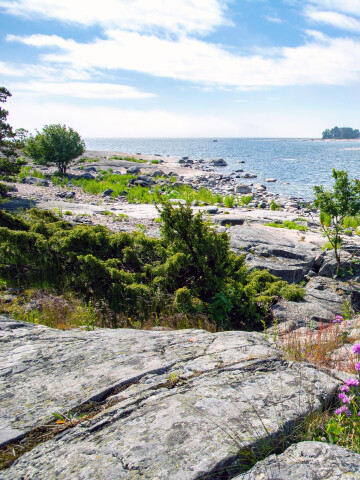
FUI-Bloggen
FUI är förkortningen för forskning, utveckling och innovation. I FUI-bloggen skriver Yrkeshögskolan Novias personal om sitt jobb, forskning, projektverksamhet och andra betraktelser.
Blogginlägg som är granskat av Novias redaktionsråd är utmärkta med nyckelordet "Granskat inlägg".
Vi följer CC-BY 4.0 om inget annat nämns.
Reflections from the EMÜ VIII Nature Tourism Conference and Beyond
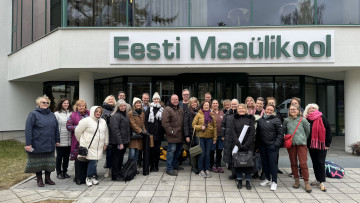
“We believe that the low season holds high potential that remains largely untapped. Rather than viewing the off-season as a limitation, we should look at it as a gateway to innovation because our natural landscapes, rich folklore, local food and vibrant heritage do not disappear when the high season ends.” – an inspiring opening remark by Aret Vooremäe, Director of the institute of Agricultural and Environmental Sciences of Estonian University of Life Sciences to kick off the EMÜ VIII Nature Tourism Conference “Low- Season Product Design” on March 11, 2025.
The 8th annual conference brought together leading experts and practitioners in rural and nature tourism, to exchange insights on adapting tourism practices to seasonal challenges.
Co-hosted by the Estonian University of Life Sciences and Estonian Rural Tourism Organization, the event received funding from Interreg Baltic Sea Region programme projects Light in the Dark and BASCIL, with additional backing from the Estonian Business Innovation Agency and Estonian Chamber of Agriculture and Commerce.
The Light in the Dark project helps small and medium-sized tourism enterprises develop off-season nature-based offerings to attract year-round visitors to rural and coastal areas of the northern Baltic Sea region, whereas the BASCIL project focuses on helping local food producers in rural areas diversify their businesses into sustainable culinary tourism services.
Light in the Dark is now progressing to its pilot phase, where the project will carry out a comprehensive series of 36 pilots throughout 2025. To initiate this phase, some of the project partners embarked on a pre-conference tour to Metsanurme and Põltsamaa, marking the launch of the first live pilot.
Pre-Conference Tour
On March 10, with first signs of spring, radiant sun overhead, and common brimstones fluttering about, the first pilot kicked off in the village of Metsanurme – a small village located in Harju County, known for its rural tranquility and natural scenery. The village features a nine kilometers’ long scenic hiking trail, connecting Metsanurme and Üksnurme, offering visitors guided nature paths through beautiful forests and landscapes. The pilot, “Sharpen your Senses”, blends hiking with a sensory exploration, encouraging a deeper connection between nature and mind by engaging all six senses – vision, hearing, touch, smell, taste, and proprioception.
Unfortunately, due to a tight schedule, the project partners couldn’t fully pilot the nine kilometers’ hike, but instead experienced a shorter stroll, combined with various exercises, to improve the appreciation for the subtleties of nature.
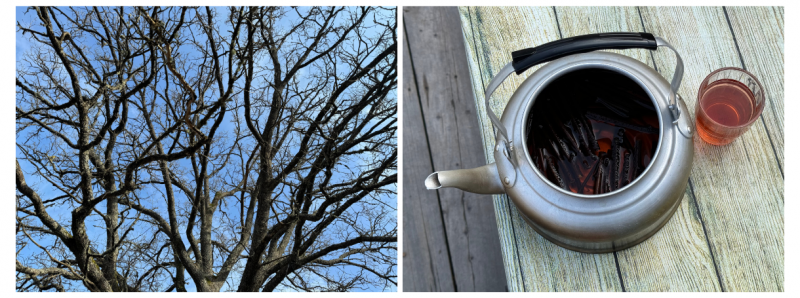
Experiencing the history of the village’s oak tree, the scent of fir trees, and stones warmed by the sun, one could truly feel nature’s awakening after winter’s dark embrace. “There isn’t much to taste in the Estonian forest at the beginning of March” – Anneli Kana, our host and guide, explained, as she brought out a pot of tea, halfway through the stroll, causing the participants to eagerly exchange guesses. Not surprisingly, nobody got it right. “Wild raspberry branch” – she revealed, pointing to the deep reddish color of the tea, infused with plenty of boiled wild raspberry branches.”
The stroll progressed with exercises to heighten awareness of the body’s position and movement, culminating in a focused, yet mindful, moment among tall pine trees and low surrounding stumps. Fascinating, how one’s mind quiets when asked to observe a pine tree from root to top with focused attention.
After a traditional Estonian lunch at the village center, the bus carried us to our next destination: Meemeistrid OÜ – a family business engaged in beekeeping and agritourism, operating in Nõmavere, just outside Põltsamaa.
Upon arriving, with the afternoon sun still lingering over the surrounding fields, one could clearly sense the first signs of spring. Over glasses of freshly pressed maple sap, Kristi and Raul Terep explained how they have repurposed the old Annamõisa dairy site to establish their existing honey farm. Today, the family-driven company develops various honeys, infused with wild Estonian flavors, including berries, pine needles, and black garlic. They even offer unique duo flavors, such as blackcurrant and cloudberry, as well as chocolate and peppermint.
“Just like having an ‘After Eight’ chocolate,” in Kristi’s own words, as the visit to the honey-farm concluded with a tasting of several different flavors – a taste experience unlike any other.
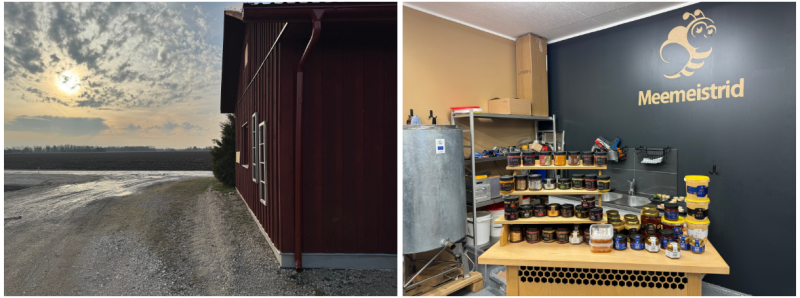
EMÜ VIII Nature Tourism Conference on “Low- Season Product Design”
On March 11, following Aret Vooremäe’s inspiring opening remarks, James Simpson, Project manager of Light in the Dark, welcomed the delegates, by connecting to this year’s theme. He highlighted the project’s aim to tackle the issue of seasonality and the vision to make the Baltic Sea Region better known as a destination for off-season travel.
The 8th annual conference, marking its international debut, kicked off with four inspiring keynote speakers. Professor Xavier Font from the University of Surrey in the United Kingdom shared insights from the Interreg “Experience” project, which focuses on developing sustainable tourism experiences to mitigate seasonal tourism challenges across France and England. He proposed strategies for redesigning experiences that transform low-season destinations into culturally rich, meaningful opportunities for both visitors and local communities.
Font’s opening statement “Different seasons mean different markets”, was soon enriched by Antra Spingas’s, closing insight “Different markets require different product description specifications”. By highlighting that different market segments require tailored product description specifications, Antra Spinga, Tourism Marketing Material Designer from Latvia, as the final speaker, shared valuable insights on effective product description structures and common pitfalls to avoid.
Meanwhile, Lily Allas, Board Member at Jõulumäe Sports & Recreation Centre in Estonia, presented results from her master’s thesis offering strategic recommendations for Estonian nature tourism product providers and public sector stakeholders on developing sustainable tourism products for international markets.
Niclas Fjellström, Global Coordinator of Culinary Heritage from Sweden, summed up his own presentation with a memorable closing line: “100% of travelers eat and drink! – The smart destinations make it unforgettable” reinforcing a straightforward, yet impactful point that people will choose their next travel destinations based on what they’ll eat.
Building on the theme of culinary tourism, the lunch break offered tastings from the BASCIL Estonian Wine Trail pilot and the Jõgevamaa Sets the Table initiative, along with a hands-on workshop by Hiiu Gourmet OÜ as part of the Light in the Dark project.
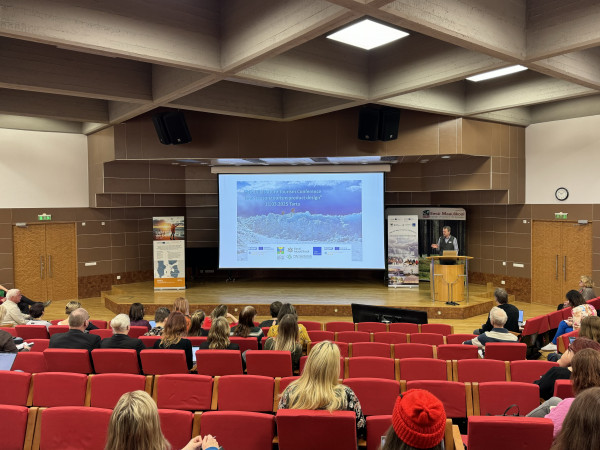
The main conference program continued with two presentations from Light in the Dark: Helena von Schoultz from Åland University of Applied Sciences, who shared the findings from the “Low Season Tourism Challenge Inventory Results,” and Pär Johansson from Stockholm Business Region, who presented “Branding Low Season,” unveiling a new concept for the Baltic Sea Region as a destination for off-season travel.
Simultaneously, the Light in the Dark SMEs had the opportunity to pitch their product ideas developed during last year’s workshop process to a tour operator. The 26 product cards were also displayed during the conference, allowing delegates to vote for the most inspiring initiatives. Certificates were handed out in three categories: Most Attractive Product, Best Innovative Product, and Best Utilization of the Dark Season.
Last but certainly not least, the conference was concluded with presentations of “Best low-season tourism practices” from various SMEs and DMOs, including examples of Light in the Dark’s own cooperators—from apple safaris and local fishing tours to valuable insights on collaborating in co-packaging the archipelago.
Post-Conference Workshop
Following the EMÜ VIII Nature Tourism Conference, Light in the Dark continued with a partner meeting on March 12. Having last met in person in Jurmala, Latvia, in October 2024, this gathering provided a vital chance to move our work forward.
Returning to a less crowded Estonian University of Life Sciences, Novia University of Applied Sciences hosted a workshop that focused on creating WOW-experiences for the Baltic Sea Region during its darkest and most silent season. Even if the 26 new off-season products marks significant progress, the project still needs more innovative activities, to strengthen the overall off-season concept.
The workshop’s creative pitches generated new activities including water tasting experiences, sea ventures, and mystery camps. The outcomes further highlighted the untapped potential of darkness and silence, revealing how frequently we overlook the opportunity to promote our unique offerings. In conclusion, I’ll leave you with the conference’s key takeaway: “Who said it’s the low season – we just need a better reason!”
A special note of thanks goes to team Estonia, especially Kaili Kattai and Lea Sudakova, whose organizational efforts made this event possible.
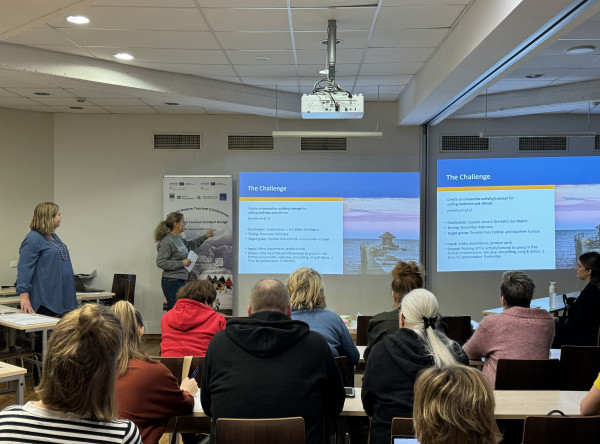
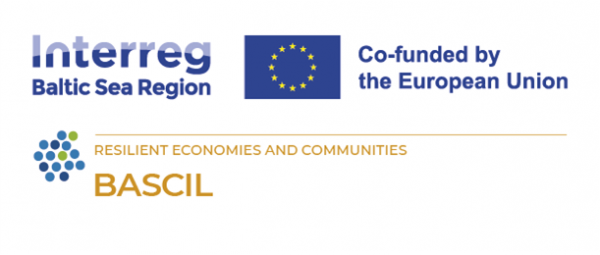
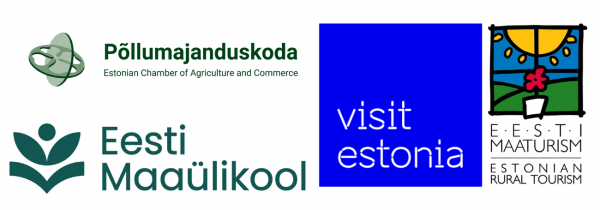
Texten har granskats och godkänts av Novias redaktionsråd 10.4.2025.
![]()
FUI-Bloggen
Blogginlägg som är granskat av Novias redaktionsråd är utmärkta med nyckelordet "Granskat inlägg".
Vi följer CC-BY 4.0 om inget annat nämns.
Ansvarsfriskrivning: Författaren/författarna ansvarar för för fakta, möjlig utebliven information och innehållets korrekthet i bloggen. Texterna har genomgått en granskning, men de åsikter som uttrycks är författarens egna och återspeglar inte nödvändigtvis Yrkeshögskolan Novias ståndpunkter.
Disclaimer: The author(s) are responsible for the facts, any possible omissions, and the accuracy of the content in the blog.The texts have undergone a review, however, the opinions expressed are those of the author and do not necessarily reflect the views of Novia University of Applied Sciences.
Posta din kommentar
Kommentarer
casino en ligne 30 maj 2025 08:32 (9 månader sen)
Thank you! Terrific stuff.
casino en ligne
Great content, Many thanks.
casino en ligne francais
Regards! Plenty of info.
casino en ligne
Many thanks, I appreciate this!
casino en ligne
Many thanks, I like it.
casino en ligne
Excellent forum posts, Many thanks.
casino en ligne
Whoa a lot of fantastic data.
casino en ligne France
Perfectly spoken really! .
casino en ligne fiable
You mentioned this really well.
casino en ligne francais
Lovely stuff, Thank you!
casino en ligne
Inga har kommenterat på denna sida ännu